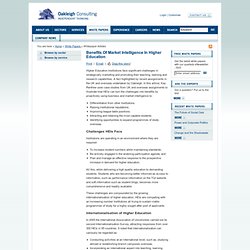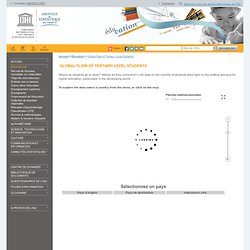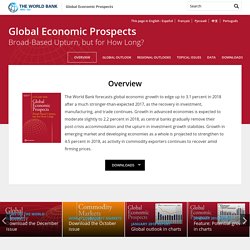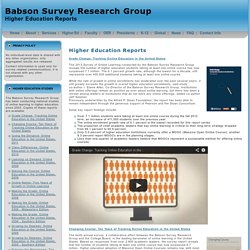

DML Hub. Benefits Of Market Intelligence In Higher Education. Higher Education Institutions face significant challenges in strategically marketing and promoting their teaching, learning and research capabilities.

A fact highlighted by recent assignments in the UK and overseas undertaken by Oakleigh. In this article, Kay Renfrew uses case studies from UK and overseas assignments to illustrate how HEIs can turn the challenges into benefits by proactively using business and market intelligence to: Differentiation from other Institutions.Raising institutional reputations.Improving league table positions.Attracting and retaining the most capable students.Identifying opportunities to expand programmes of study overseas.
Challenges HEIs Face Institutions are operating in an environment where they are required: To increase student numbers while maintaining standards;Be actively engaged in the widening participation agenda; andPlan and manage an effective response to the prospective increase in demand for higher education. Case Study 1. Copyright. Global Flow of Tertiary-Level Students. More students pursuing higher education abroad According to the latest UIS data, at least 3.8 million students in 2011 were enrolled in tertiary education abroad, up from 2 million in 2000.

The surge in internationally mobile students* reflects the rapid expansion of enrolment in higher education globally, which has grown by 83% in a decade. East Asia and the Pacific is the largest source of international students, representing 29% of the global total. Students from China make up one-half of this figure, or 18% of the total. The United States, Japan and Australia are their main destinations for study. North America and Western Europe follows, accounting for 15% of those going abroad. In relative terms, students from Central Asia and sub-Saharan Africa are the most mobile in the world. Education hubs are developing in the regions and attracting growing concentrations of mobile students.
In about 15 countries, students studying abroad account for half or more of those studying at home. Market Research Reports & Analysis. Working with commission-based education agents: the real issue. In a departure from our normal editorial coverage, we are pleased to present the following opinion piece from ICEF CEO Markus Badde on a topic that is currently being widely discussed across the industry: the ethics of working with and remunerating education agents. Anyone involved in the international education sector knows that for some time, and especially in the United States, there has been debate about the ethics of using commission-based agents to help in the recruitment of foreign students. At ICEF – where many of our efforts are spent encouraging the highest standards of agent practice as well as helping institutions meet their recruitment goals – we have watched with interest as the debate has played out.
At this writing, the debate seems to largely revolve around the simple proposition that agents compensated by commission = “unethical.” Needless to say, we disagree. More and more students are turning to agents Why commission works Conclusion. UK HE International Unit — Global Opportunities for UK Higher Education - International Unit. Mish's Global Economic Trend Analysis.
Prospects for the Global Economy - Concluding remarks. Source: World Bank.

Notes: e = estimate; f = forecast. EMDE = emerging market and developing economy. World Bank forecasts are frequently updated based on new inform... Notes: e = estimate; f = forecast. EMDE = emerging market and developing economy. Research. THE BRITISH LIBRARY - The world's knowledge. Financial Services to the Public Sector, Retail, Property, Leisure and Energy Sectors. Business News Articles - 2013 Trends. Babson Survey Research Group: Higher Education Reports. Grade Change: Tracking Online Education in the United States The 2013 Survey of Online Learning conducted by the Babson Survey Research Group reveals the number of higher education students taking at least one online course has now surpassed 7.1 million.

The 6.1 percent growth rate, although the lowest for a decade, still represents over 400,000 additional students taking at least one online course. While the rate of growth in online enrollments has moderated over the past several years, it still greatly exceeds the growth in overall higher education enrollments, said study co-author I.
Elaine Allen, Co-Director of the Babson Survey Research Group. Institutions with online offerings remain as positive as ever about online learning, but there has been a retreat among leaders at institutions that do not have any online offerings, added co-author Jeff Seaman. Some key report findings include: Babson Survey Research Group: Higher Education Reports.